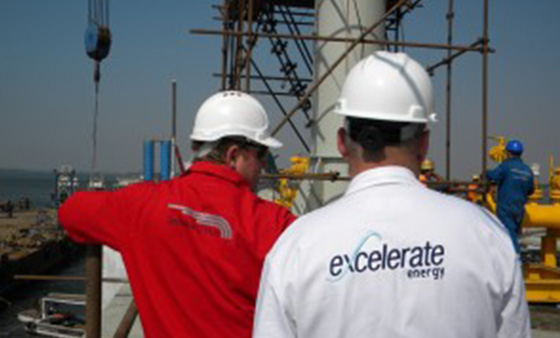Multi-discipline design
If you are looking for support at any phase of the design process from the concept and feasibility, through FEED to detailed design, Technica would love to help and we enjoy it most when we can manage your project through all these stages with you.
Our design experience includes various projects associated with the UK gas networks, gas terminals, LPG loading and storage and offshore oil and gas production platforms. Whether your design project is for a simple piping isometric for an offshore valve change, or a single pressure transmitter on an AGI, or a multi-discipline detailed design of a new gas import facility, Technica have the experience, expertise and passion to help.
As engineers we love the detail and the challenge and we relish the opportunity to solve your engineering problems for you.
Whether interfacing with your own discipline engineers or our in-house process, mechanical, electrical and instrumentation teams, we understand sharing information is key; that the civils guys will need the equipment loads and sizes early from the mechanical engineers, that the mechanical engineers need the pressures from the process team and the instrument guys will be stressing the urgency of fixed P&IDs and a LOPA study from project kick off. Our open plan office with its numerous “team interaction zones”, has been designed to encourage this interaction.
As you would expect we have formal design and progress reviews both internally and with your engineering teams. However, central to our success is the friendly family atmosphere and close, and daily, communication between our designers and engineers. Our instrument engineers sit next to the mechanical engineers and the electrical designer can walk by a few desks to chat through the cable routing with the piping designer. Their collaboration provides an engaging work place for them and an excellent design output and a smooth installation phase for you.
If you need more specialist design services we have expertise in 3D CAD, functional safety, fiscal metering and software.

Port Qasim LNG Terminal
DEFINITIONS
LNG: Liquefied Natural Gas
BSCFD: Billion Standard Cubic Feet per Day
MMSCFD: Million Standard Cubic Feet per Day
TECHNICA COMPLETES PAKISTAN LNG TERMINAL DESIGN CONTRACT
Grimsby-based engineering design company, Technica, has completed the multi-disciplined detailed design for the LNG import terminal in Port Qasim, Pakistan.
Working on behalf of American Floating LNG Solutions Provider, Excelerate Energy, Technica completed onshore and offshore construction in February and have since assisted local contractors with the testing and commissioning of the facility. The project will increase gas availability in the country by up to 15 percent.
Explains John Davison, Managing Director at Technica: “We were contracted in May 2014 by Excelerate Energy to deliver a multi-discipline detailed design and procurement management for the LNG terminal. Our team of design engineers completed the original contract on time and were asked to assist site construction personnel with the testing and commissioning of the facility.”
Pakistan is facing critical and growing gas shortages that have disrupted the economy and everyday life. Its gas deficit is projected to double, by the end of 2015, to almost 2,000bscfd. The Port Qasim project has a maximum discharge capacity of 690mmscfd which will enable it to contribute greatly toward easing Pakistan’s ongoing energy crisis.
Natural gas accounts for almost half of Pakistan’s energy mix. To bridge the gas gap, Pakistan is working on transnational pipelines, encouraging additional local production, and promoting LNG import. Pakistan’s gas market is highly developed and there is an urgent need to import LNG.
Concludes John: “The LNG import terminal in Port Qasim provides fast-track gas supplies for the country to ensure continued economic growth. Switching from expensive fuel oils to cheaper, environmentally friendly LNG will reduce carbon emissions, decrease road congestion, increase electricity availability for consumers and provide the Pakistan economy considerable fuel savings each year.”

